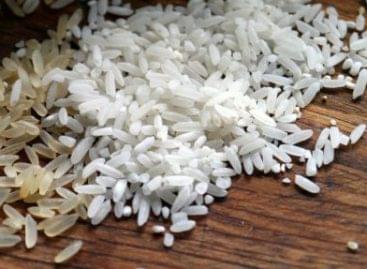Sea cucumber thieves arrested
Japanese police have detained five people suspected of stealing more than 600 kilograms of sea cucumbers off the coast of Fukuoka.

(Photo: Pixabay)
According to a report from The Guardian on Wednesday, sea cucumbers sold as an extremely expensive delicacy have attracted the attention of Japanese criminal organizations for quite some time, and the police regularly crack down on sea cucumber thieves. Animals living on the seabed are easy prey for criminals, they are also referred to as “black diamonds” because they are in high demand in China and Hong Kong.
Japan tightened penalties for sea cucumber poaching and illegal trade in 2018
Up to three years in prison and a ¥30 million (HUF 77 million) fine can be imposed for breaking the law. However, even the harsh punishment does not deter the yakuza gangs from poaching. The export of illegally caught sea cucumbers has reportedly become as profitable for them as the drug trade. According to Japanese media, the suspects who have just been arrested looted 624 kilograms of sea cucumbers from the territory of a local fishing cooperative.
According to data from the Ministry of Agriculture, the average wholesale price of sea cucumber in Japan in 2021 was ¥2,868 (HUF 7,300) per kilogram. The latest catch is estimated to have caused local fishermen up to 1.8 million yen (4.6 million forints) in damage.
In Japan, sea cucumber is pickled and eaten as a side dish. However, most of the shipments smuggled into China are used for traditional medicine. Due to poaching, the amount of sea cucumber caught in Japanese waters decreased from more than 10,000 tons to 6,100 tons between 2006 and 2020.
MTI
Related news
Asahi reports double-digit sales declines after cyberattack
🎧 Hallgasd a cikket: Lejátszás Szünet Folytatás Leállítás Nyelv: Auto…
Read more >McDonald’s in Japan halts Pokémon card sale, food waste follows
🎧 Hallgasd a cikket: Lejátszás Szünet Folytatás Leállítás Nyelv: Auto…
Read more >Related news
A colourful selection of sauces on the Easter table
🎧 Hallgasd a cikket: Lejátszás Szünet Folytatás Leállítás Nyelv: Auto…
Read more >Forced paths: trends and decisions in 2026
🎧 Hallgasd a cikket: Lejátszás Szünet Folytatás Leállítás Nyelv: Auto…
Read more >NGM-VOSZ cooperation agreement for digital commerce security
🎧 Hallgasd a cikket: Lejátszás Szünet Folytatás Leállítás Nyelv: Auto…
Read more >








